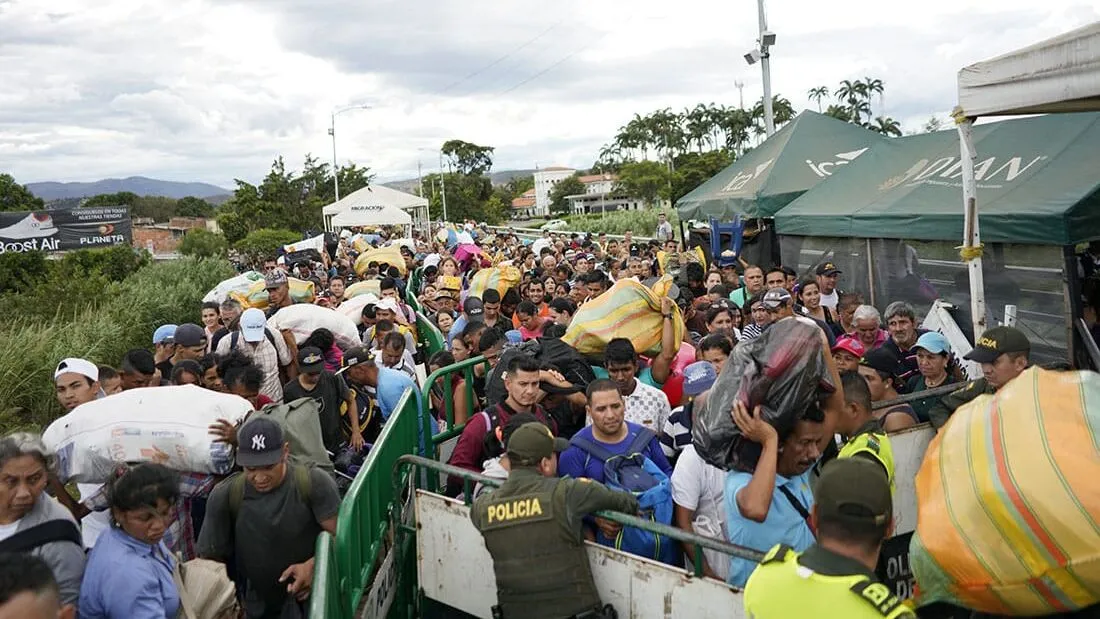In a Crisis, the Deepest Scars Can’t Be Seen
In Lebanon, Colombia, Bangladesh, and beyond, a quieter tragedy lingers beneath some of the world’s worst humanitarian crises: those who need mental health care the most are the ones with the least access.

“Hope, not despair,” said the 87-year-old retired teacher with a smile. But beneath her kind laugh, you could feel an undeniable pain.
“Rosie” is one of the 300,000 people who lost their home after the deadly Port of Beirut explosion on August 4. The breast cancer survivor has never been married and spent her entire life caring for her parents until their death — an independent life that’s now filled with an ever-present void.
About half an hour from Rosie’s crumbled home, I recall my poignant meeting with a mother of five who had fled her hometown of Manbij, Syria in 2015.
“My children saw beheadings and dead bodies on the ground — they lived in constant fear on a daily basis,” the woman told me as her 8-year-old son, Khaled, listened to his mother recount the horrors of life under ISIS. The little boy wore no emotions on his face; he was neither terrified nor sad, and his peculiar stillness was more worrisome than comforting.
In Cox’s Bazaar, Bangladesh, I met countless Rohingya mothers who recalled their ravaged villages, murdered husbands, and burnt homes. I’ll never forget the tears of 35-year-old Harizabegum, a mother of eight whose husband, father, brothers, and uncles were all brutally murdered. Nor will I forget Tahira, a 40-year-old mother of three who recalled her 12-day journey escaping to Bangladesh after witnessing dozens of young girls, including her own niece, raped by army forces.
Hopelessness, depression, anxiety, PTSD, grief, despair, lack of stability and belonging — these all-too-common feelings are harbored by countless refugees, internally displaced people, and ordinary citizens forced to endure conflict and crisis around the world.

For every person who dies in a war or tragedy, there’s another who has silently lost his or her soul. Emotional and psychological damage are often invisible to the eye, yet their impact on human health can be as dangerous and catastrophic as any visible illness or impediment.
These women, children, and men continue to live their lives without any support for their psychological and emotional wounds. And the tragedy of it all is that they will never know that their invisible scars could have been mended had they received adequate support.
For every person who dies in a war or tragedy, there’s another who has silently lost his or her soul.
Today, according to the World Health Organization, depression has become a leading cause of disability worldwide, while suicide is the second leading cause of death in 15- to 29-year olds. Although there are effective treatments for mental disorders, lack of access to care remains a major burden, especially in developing countries: between 76% and 85% of people in low- and middle-income countries receive no treatment for their disorder.
It’s not just a global problem. A study done by the department of Health and Human Services in 2018 revealed that 1 in 5 adults and 1 in 6 young people in the U.S. experience a mental illness each year. We now know that 50% of all lifetime mental illness begins by age 14, and 75% by age 24.
While research indicates a grave mental health crisis that’s growing in the U.S. and beyond, the topic remains a highly sensitive subject rarely discussed by the community at large. The taboo surrounding mental health has not only claimed millions of lives worldwide, but continues to push millions more into a deeper and darker abyss.

Recognizing, addressing, and mitigating mental health vulnerabilities remains a monumental challenge even in developed countries. In developing and more conservative countries — especially those gripped by years of conflict — the scale of the mental health crisis is beyond devastating.
In places where the elderly live in the limbo of loss and despair, where young people have to decide between eating or turning to extremists who could fulfill their desperate need for belonging, or where a father’s severe depression will lead to rage against his own family, one can only imagine the difference mental health support can make.
The taboo surrounding mental health has not only claimed millions of lives worldwide, but continues to push millions more into a deeper and darker abyss.
Unfortunately, the people who need these services the most are the ones least able to access them.
Rawan Hamadeh is an associate project coordinator for Project HOPE, working on programming related to mental health. We were both in Beirut supporting Project HOPE’s response shortly after the explosion on August 4. A native of Lebanon, Rawan explained to me how people in her country had faced instability for so long that they think of it as a normal part of life.
It’s a message I’ve heard from so many other health care professionals in the Middle East and other developing parts of the world. Rawan explained that while the mental health care system is privatized in countries like Lebanon, the lack of knowledge about the issue itself makes it difficult to address such a widespread crisis.
“I see educated people my age who show obvious signs of PTSD or depression without even knowing it or thinking of it as a serious issue that needs to be addressed,” she said. “These people go on living life as if nothing is happening, while in reality any health care or mental health professional would see the alarming signs and would say this person needs help.”

Whether in the Middle East, the U.S., or beyond, we must realize that unless we speak up about mental health, we will never see tangible changes in addressing this life-threatening ailment. As a global community, we must learn to talk about mental health openly — independent of our ethnicity, religion, or country of residence. We cannot be ashamed of raising our voice, and we must inherently understand that mental health is connected to our overall health.
Ultimately, we must train ourselves to acknowledge mental health the same way we acknowledge a flu or a fever. We must learn how to ask for help and be confident that it’s OK to seek support — taking comfort that each of us can be a vocal advocate, where our openness will ultimately push policymakers to develop the tools and resources it will take to deal with this invisible adversary.

Tara Kangarlou is an award-winning journalist, author, and a global advocate on mental health. In 2016, she launched Art Of Hope, a nonprofit with the sole mission of alleviating the trauma, PTSD, and mental wounds of war and displacement among war-torn refugees and vulnerable communities. Her forthcoming book, The Heartbeat Of Iran, will release in May 2021.







